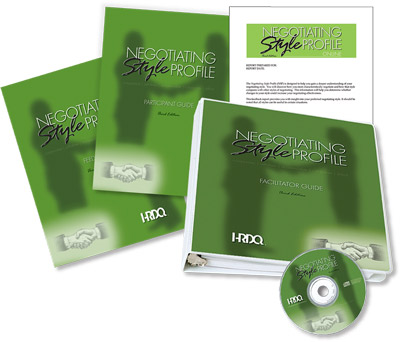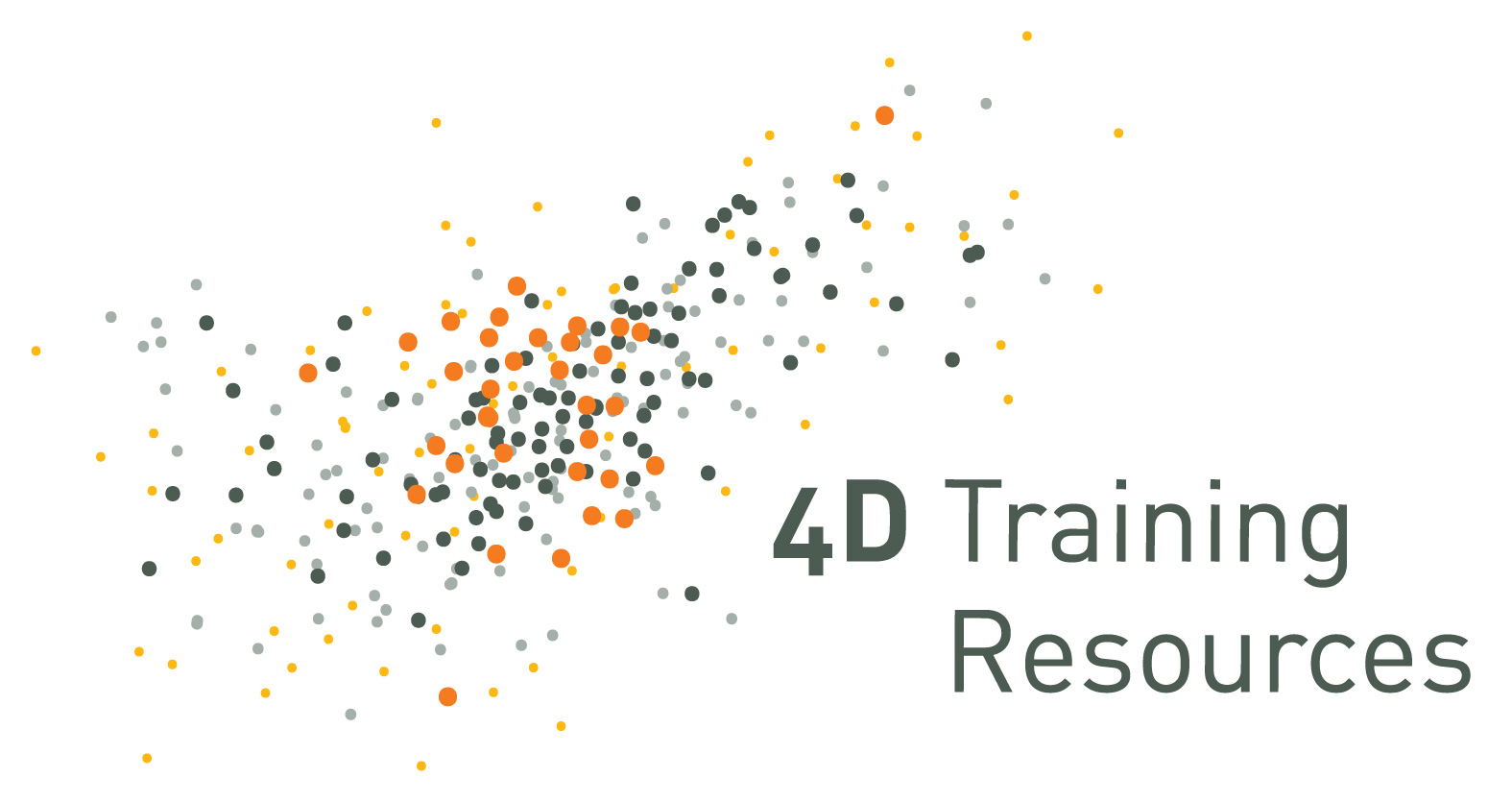Negotiating Style Profile

The Negotiating Style Profile is a win-win, collaborative negotiating assessment for employee and management development training to improve negotiating skills. The assessment identifies a preference for 1 of 5 negotiating styles based on the William Ury and Roger Fisher’s win-win model of negotiating, and the Thomas-Kilmann conflict resolution model.
Negotiating is a skill that everyone can use, regardless of whether or not it is part of a formal job requirement. One of the challenges, though, is that not everyone negotiates in the same way. We each have a personal negotiating style that influences how we approach and engage the process. By being aware of their negotiating style, individuals will be in a better position to acquire good negotiating skills.
-
Understand 5 styles of negotiating
-
Identify personal negotiating characteristics
-
Learn why a win-win approach is most effective
-
Gather peer feedback about one’s negotiating style
Theory and Development
used to describe the five styles of negotiating behavior. Drawing from the literature on conflict resolution, it is clear that a negotiator cannot be effective in both the short and long terms if he or she emphasizes one set of concerns to the exclusion of the other.
Although variations of each of the 5 Characteristic Negotiating Styles may be appropriate under certain conditions, it is suggested that a consistent application of the Collaborate style offers the greatest probability of producing the highest quality negotiating results and the most enduring satisfaction to the parties involved.
Uses for the Assessment
How It Works
What to Order
The Online Version is an excellent choice for enterprise-wide training or audiences that are geographically dispersed. It offers 24/7 access, streamlined distribution, and instant scoring. Each Online Assessment includes personalized reporting, full-color charts, interpretive information, worksheets, and action planning.
The Print Version is ideal for facilitators who prefer to oversee scoring and administration of the assessment, if you don’t know who the participants will be before the class begins, or if your learners do not have easy access to computers. Includes pressure-sensitive forms for scoring to aid manual tabulation. The accompanying Participant Guide includes interpretive information, worksheets, and action planningYou will need to order a Facilitator Guide per trainer and either 1 Print Participant Guide for each individual learner. The Starter Kit is a great way to begin your rollout and includes a Facilitator Guide and 5 Print Participant Guides. Additional Participant Guides may be purchased separately. Purchasing all of the participant materials you need at one time may qualify you for quantity discounts that can save you money and simplify ordering.
If you are new to this product we highly recommend HRDQ QuickStart Training, whether you are a novice trainer or a seasoned facilitator. It’s an excellent way to quickly get up to speed on the product so you can step into your first training class with confidence. Personalized, one-on-one telephone coaching is provided in one-hour sessions at your convenience. Our subject matter experts will review the program with you, offer ideas for tailoring the program to your specific needs, discuss typical participant questions and reactions, and more. Plus, we’ll include a Facilitator Guide for FREE!
Ongoing Training
Each time you administer the assessment you will need to order a new Participant Guide for each individual. Quantity discounts begin at 50 units per order. Additional Facilitator Guides are also available for individual purchase if you have additional trainers or require a new copy.
Related Products

